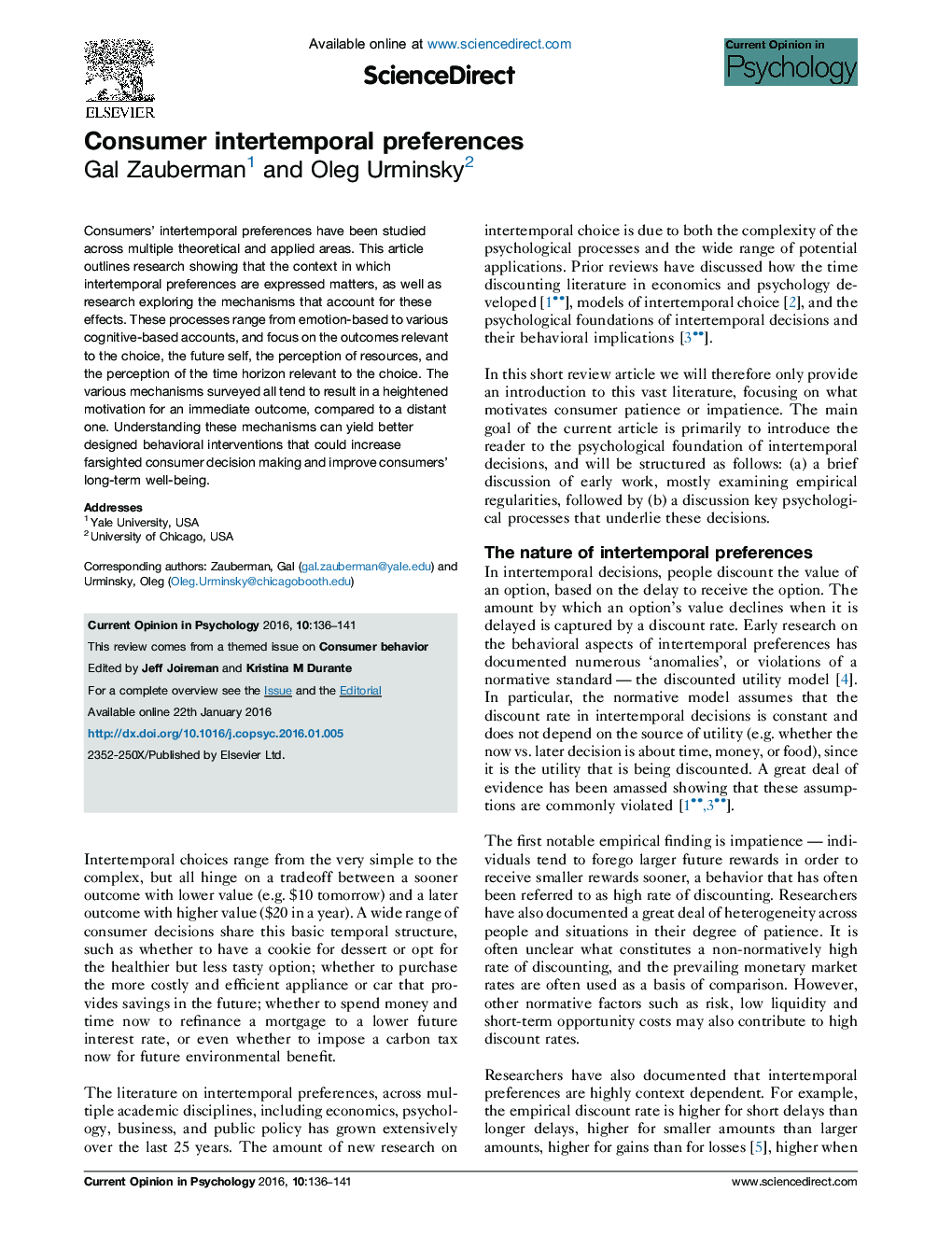| Article ID | Journal | Published Year | Pages | File Type |
|---|---|---|---|---|
| 879272 | Current Opinion in Psychology | 2016 | 6 Pages |
•People are highly impatient when trading off present vs. future outcomes.•The context in which intertemporal preferences are expressed matters.•Both emotion-based and cognitive-based mechanisms contribute to these effects.•All mechanisms result in a heightened motivation for immediate vs. distant outcomes.•Conceptually-based interventions could increase future consideration and well-being.
Consumers’ intertemporal preferences have been studied across multiple theoretical and applied areas. This article outlines research showing that the context in which intertemporal preferences are expressed matters, as well as research exploring the mechanisms that account for these effects. These processes range from emotion-based to various cognitive-based accounts, and focus on the outcomes relevant to the choice, the future self, the perception of resources, and the perception of the time horizon relevant to the choice. The various mechanisms surveyed all tend to result in a heightened motivation for an immediate outcome, compared to a distant one. Understanding these mechanisms can yield better designed behavioral interventions that could increase farsighted consumer decision making and improve consumers’ long-term well-being.
